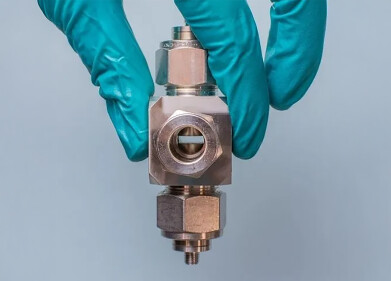Analytical Instrumentation
How Much Should You Fill Up Your Fuel Tank?
Feb 23 2020
While some motorists never leave the petrol station without a full tank, others get by with regular top ups as needed. Now, experts are warning that continually topping up the tank with small amounts could lead to engine problems. The warnings come after a British driver experienced a sudden engine seizure while travelling at 70mph on the motorway. It was caused by damage to the car's fuel filter, which was blocked with a buildup of sediment.
Running on empty clogs fuel filter, seizes engine
One of the main concerns associated with topping up tanks is that it forces the engine to run on "fumes" much more often than it would on a full tank. Oil deposits and sediment usually drop to the bottom of the tank and are only pumped around the engine when fuel is running low. So, by continually running cars on empty and topping up frequently, the engine is forced to suck up the dregs and circulate them through the system. To avoid this altogether, some motorists prefer to fill up when the tank is only half empty. Running fuel tanks to empty can also cause with fuel pump to overheat to draw up petrol. This can cause the pump to prematurely wear out and lead to early replacement.
Petrol tanks make way for electric batteries
Of course, with sales of new petrol and diesel powered cars set to end by 2035, filling up the tank will soon be a thing of the past. Already, the UK has installed more than 17,000 electric vehicle charge stations across the country. This figure is growing, with new charge points being added to the network daily. The Committee on Climate Change says that if other European nations follow suit, there's a 50% chance of average temperatures rising by more than 1.5C by 2100, which is considered the absolute limit.
While electric vehicles are a major step forward for green energy, there's still plenty of controversy surrounding how they're charged and where the electricity comes from. Currently, 43% of the electricity sector's grid supply for the United Kingdom is powered by fossil fuels, including natural gas. While less than 5% comes from coal, EVs aren't completely zero emission. That said, renewables currently generate more than 20% of electricity in the UK, with this figure set to rise to 30% by the end of 2020. By 2050, the UK plans to slash greenhouse gas emissions to net zero, which would mark a critical milestone for the fight against climate change.
Want to know more about how the energy industry is working to meet the EU’s climate change objectives within the transport sector? Don't miss 'Recent advances electrify the lubrication industry.'
Digital Edition
PIN 25.5 Oct/Nov 2024
November 2024
Analytical Instrumentation - Picturing Viscosity – How Can a Viscometer or a Rheometer Benefit You? - Sustainable Grease Formulations: Evaluating Key Performance Parameters and Testing Method...
View all digital editions
Events
Dec 03 2024 Dusseldorf, Germany
Dec 08 2024 Anaheim, CA, USA
Turkey & Black Sea Oil and Gas
Dec 11 2024 Istanbul, Turkey
Dec 19 2024 Aurangabad, India
Jan 20 2025 San Diego, CA, USA



















